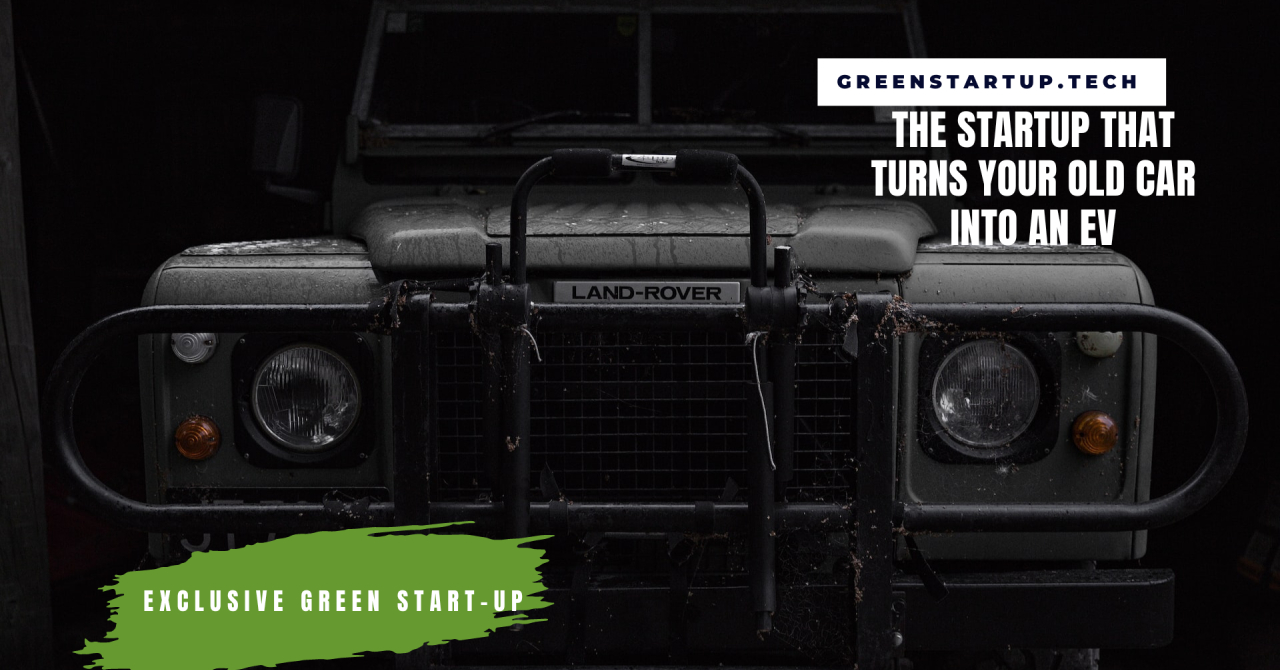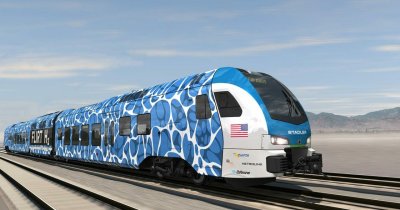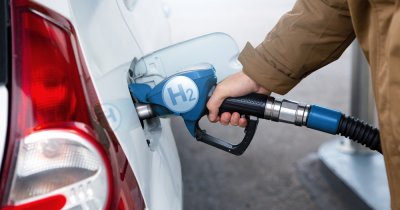The new company aims to use the knowledge of its designers and engineers in order to help more people convert cars powered by internal combustion engines into EVs ready for the new electrified world.
Fellten will operate in Australia, the UK and the US, before moving to new markets, helping people electrify old Land Rover Defenders and Porsche 911s, among other models.
EVs, not a common trend everywhere
One of the first things we learned from Dave was that EVs are not very widely adopted all over the world or at least they didn't get the same traction everywhere.
"It's such an emerging industry, EVs in Australia in particular, it's been a very slow uptake of EVs compared to other parts of the world. So, we saw that as an opportunity when we started, to try and do something about that in the way that we could."
Instead of trying to develop a new electric car from scratch and compete with existing companies, such as Tesla, for example, Jaunt Motors at the time innovated and came with the idea that maybe an old 4X4 vehicle could be battery-powered as well.

After all, it could have been a reliable machine that worked for many years that can get pushed to the future of zero emissions with the help of an electric motor and a set of batteries.
"Australia has more four wheel-drives per capita than anywhere else in the world, so out of 15 best-selling cars in Australia in a year, maybe 12 of those are small trucks or they're SUVs, so we have a real obsession with them", Dave explained.
He also stated that some people really need these 4X4 vehicles, given the kind of roads that they drive through every day, so retrofitting these old vehicles into battery-powered was a business opportunity.
Jaunt Motors's first conversions
The company started about three to four years ago with the idea to build systems which can be used to convert old cars, Land Rovers Defenders at first, into EVs.
The reason for this, the co-founder detailed, was because "there is a sort of nostalgia almost anywhere in the world, because when you think of a Land Rover, when you think of going in a safari in Africa or in outback Australia, that's the kind of car that you think of."
Thus, by combining the old design of a capable off-roader with the new technologies that EVs have, people can have a more reliable experience, while reducing pollution to a minimum.
Also, the fact that the Defender was a relatively unchanged car for many decades helped the team at Jaunt Motors with building a system that would be suitable for more than one generation of a car.

Jaunt Motors started collaborating with Zero EV as the British company was already working on systems for retrofitting old cars into battery-powered vehicles.
But since the market in the UK was already adopting new EVs on a regular basis, officials decided it's best to work on a business-to-business level, offering other startups and companies the know-how and tools to modernize vehicles.
The similar vision and the ever-tighter collaboration between the two companies increased the interest in merging them into one entity, namely Fellten.
The challenges of a small EV conversion company
One of the biggest challenges for such a company, as per Dave Budge, was finding out how to fit all the modern components into an old chassis that wasn't designed to host new technologies.
"On one hand, the electric motor is very small, so that's very easy to fit, but then you get to the batteries and that's the real challenge, having a battery that can deliver the range people expect and want into a vehicle platform that was never designed to have batteries", the co-founder told us.
Also, making the car work and ensuring that it is safe and respects all global regulations and standards are all significant obstacles that Jaunt Motors had to overcome in the process of retrofitting these old cars.
As far as sourcing the necessary components, Dave told us that his company sources the batteries from the industry's main suppliers, mainly located in Europe and China, while the electric motors are designed by Jaunt Motors as well, currently Fellten.
The company also makes its own circuit boards and software solution for some other parts of the EVs, while the rest of the necessary components come from various suppliers around the world.

The price of converting an old car into an EV
While electrifying most old cars is certainly possible from a technical stand point, the price factor can get in the way.
According to Dave Budge, turning an old Land Rover or a Porsche in a battery-powered car costs about 70.000 USD, all the technologies and even air conditioning included.
While this might seem high, it is important to know that there is a lot of work to be done when converting an old car into a modern, zero-emissions vehicle, such as fitting all of the equipment.
The car could also need restauration in some parts, potentially, and some people might want to change the paintjob and even upgrade the interior, which all adds to the time it takes and the amount it costs to complete the conversion.
The reason someone might consider to get a car retrofitted instead of buying a new EV out of the factory is in part due to sentimental value or the fact that they might want to have a unique vehicle, something different than all the Teslas and the Volkswagen IDs out there, Dave argues.
What's more, the vehicle conversion market is already small and niched compared to the mass market of EV adopters.
Usually, people who are looking at conversions are having specific needs for a vehicle, something that no current EV would be able to do, but that old Land Rover Defender definitely can do.

Fellten's goals for this year
Since Jaunt Motors and Zero EV have now become Fellten, one of the new company's goals, as per Dave, is spreading awareness around the world about EV conversions and its benefits, whether this is done through the government of the public.
As far as local work is concerned, the co-founder of Jaunt Motors is looking to expand production capacity in Australia by moving to a larger workshop space.
"We'll be moving into a new factory, growing from a prototype workshop into a larger version of that, but also a large manufacturing and assembling facility, as well", he shared with us.
This means, hopefully, that the team will be able to deliver tens of vehicles by the end of the year to customers, instead of a handful or retrofitted EVs per year.
Also, on a large scale, Dave wants newly-founded Fellten to be able to deliver upwards of 150 to 200 systems per year, namely in North America and Europe, where the company has workshops.
 Mihai - Cristian Ioniță
Mihai - Cristian Ioniță












Any thoughts?